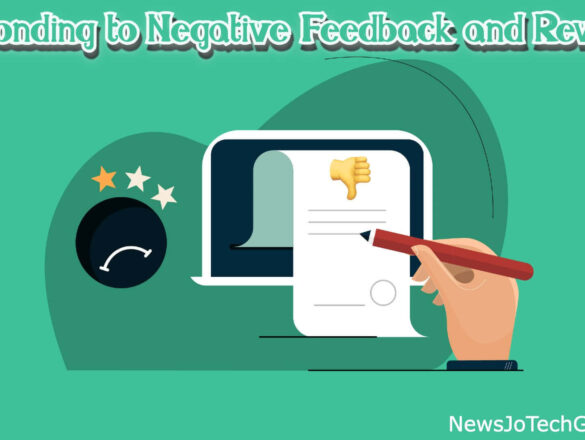Feedback has evolved from being merely anonymous suggestions dropped in a box to a potent mechanism that heavily influences the face of your business.
As customer service experts are well aware, every comment, review, or rating is a crucial factor in prospective client decisions.
However, when faced with negative feedback, what should be the course of action?
Avoidance might seem like the easiest path, yet there is extensive value in confronting and responding to these negative remarks and reviews.
Negative Feedback

Negative feedback adorns numerous guises, be it in the form of one-star Yelp reviews or disparaging remarks on social media platforms.
Recognizing and understanding the nature of negative feedback is pivotal, as it often revolves around service grievances, product-related problems, or operational inefficiencies.
It’s important to distinguish between constructive criticism and baseless complaints, as this allows you to concentrate on what’s actionable.
Constructive feedback provides specific points that lead to improvement, while baseless complaints are often devoid of detail or substance.
Segmenting feedback into these categories allows you to prioritize responses and concentrate on what’s most significant.
This aids in addressing issues promptly and enhancing your service offering. It’s also advantageous to educate customer service teams to distinguish between these types of feedback, as it improves their capability to respond effectively and productively.
The Upsides of Responding
Reacting to negative feedback goes beyond damage control; it’s a chance to foster trust and loyalty. When customers observe that their concerns are being addressed seriously, they feel valued.
This can convert a disgruntled customer into a loyal advocate. Furthermore, addressing feedback offers a direct avenue to refine your products or services.
Customers often underline problem areas you may be oblivious to, providing you with an opportunity to effect necessary modifications.
Another significant boon of addressing feedback is the enhancement of your online reputation. Publicly responding to reviews demonstrates to potential customers your commitment to quality and your clientele’s welfare.
This openness fosters credibility and paints a picture of a business that listens and adapts. Each response is an opportunity to flaunt your brand’s dedication to customer satisfaction.
Tactics for Responding
The secret to successfully responding to negative feedback hinges on timing and personalization, and a leading communication agency is often required to master this art.
Endeavour to respond within a 24-48 hour window, acknowledging the customer’s issue and exhibiting empathy.
Personalize your response by using the customer’s name and referring to specific details from their feedback. This shows that you value their contribution and are treating their concerns gravely.
Transforming negative experiences into positive outcomes is another potent strategy. Offer solutions, be it a replacement product, a refund, or additional support. Transmuting a customer’s frustration into a resolution can leave an indelible impression.
Remember, the objective is not merely to rectify the problem but also to ensure the customer feels heard and valued.
As a final point, responding to negative feedback is a critical element of contemporary customer service that shouldn’t be ignored.
By recognizing and addressing criticisms, you can not only bolster relationships with current customers but also enhance your brand’s reputation in the marketplace. For those eager to delve deeper into strategies and tips, consider participating in forums or workshops focused on customer service excellence.
Continue transforming adversities into opportunities, and watch your business flourish.




